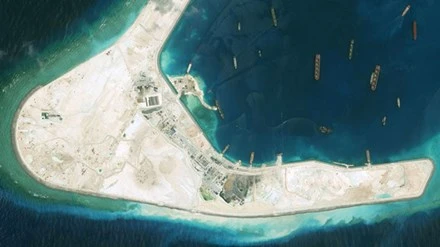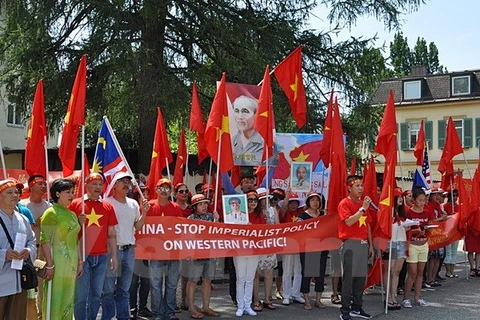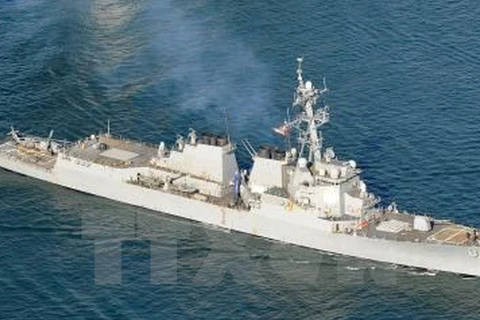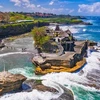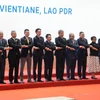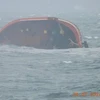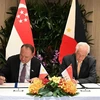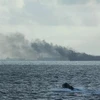 China's illegal activities on Chu Thap (Fiery Cross) reef in Vietnam’s Truong Sa archipelago (Photo: EPA)
China's illegal activities on Chu Thap (Fiery Cross) reef in Vietnam’s Truong Sa archipelago (Photo: EPA) Washington DC (VNA) – Environmental security in the East Sea was the main theme of a seminar held in Washington DC on May 3 by East West Center, a US-based institution for public diplomacy in the Asia Pacific, with the participation of more than 30 scholars and journalists.
Speakers at the event, who included James Borton - a faculty associate at the Walker Institute at the University of South Carolina and PhD. John McManus - Professor of Marine Biology and Fisheries at the Rosenstiel School of the University of Miami, argued that China’s increasingly assertive behavior and conflicts with other claimant nations in the East Sea– especially Vietnam and the Philippines – over fishing in the area have caused diplomatic tensions and heightened public hostility.
They noted that while China claims its reclamation projects don’t harm the environment, there is evidence that China’s behaviours in the waters are likely fueling a major environmental catastrophe, endangering fishing stocks, threatening marine biodiversity, and creating long-term threats to some of the world’s most spectacular coral reefs.
According to the scholars, China’s construction of artificial islands by dredging sand from coral reefs and building up land mass has accelerated loss to marine ecosystems and fish species. They expressed concern that China’s daily dumping of landfill mixed with sand from the reefs is wrecking the region’s fragile marine ecology, adding that China’s own marine science community has suggested that the decline of sensitive coral reefs was almost 80 percent.
Researchers and marine biologists believe that continued land reclamation by China, which exhausts fish stocks – is believed by to be a direct violation of the UN Law of the Sea.
The speakers suggested three groups of solutions. First, the region needs to seek support from private and public stakeholders to fund cooperative marine science research in the region and develop joint marine science ecosystem monitoring and apply scientific results to ocean management, environmental security.
Second, it also needs to create more marine protected areas so that the eco-systems can regain their actual function, fish populations can be bolstered and habitats protected. All the claimants should create a joint commission comprised of leading marine scientists while improving public awareness of the environmental importance of the East Sea.
Third, ASEAN needs to strengthen cooperation over sharing fish capture data and communicating with the UN Oceans Programme to get them to fast track their newly proposed ocean treaty that would make new rules and regulations including creating marine reserves on the high seas.-VNA
